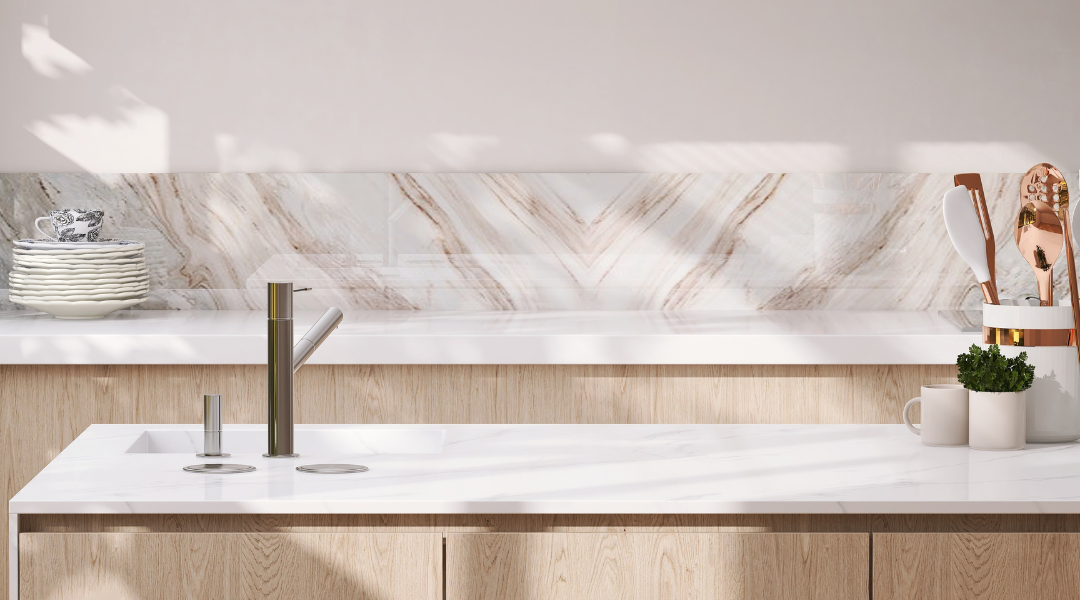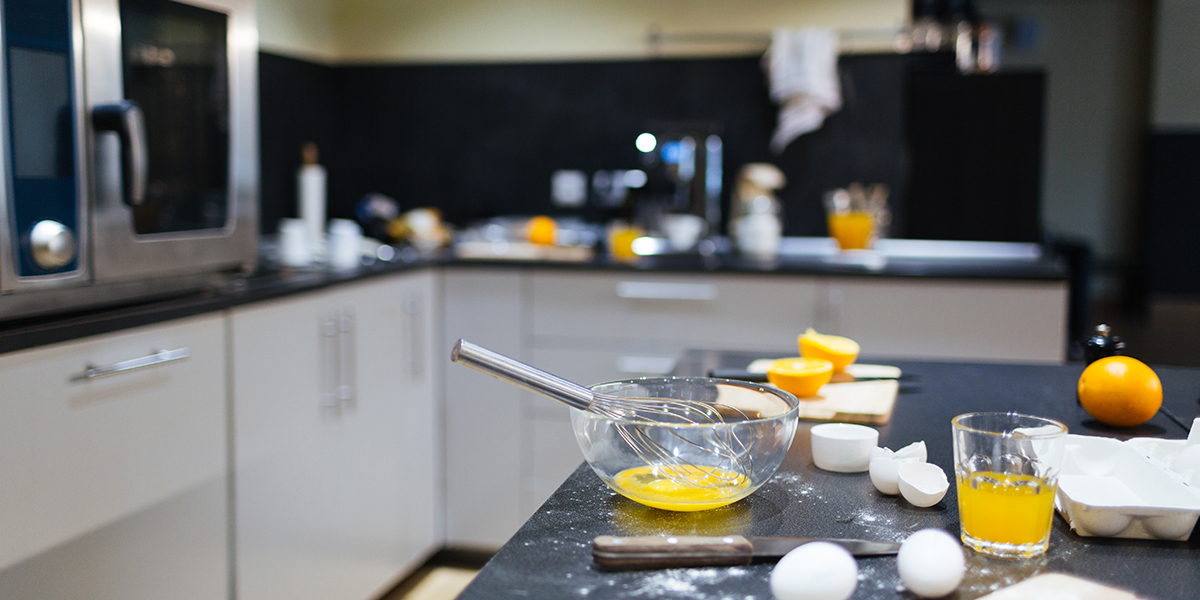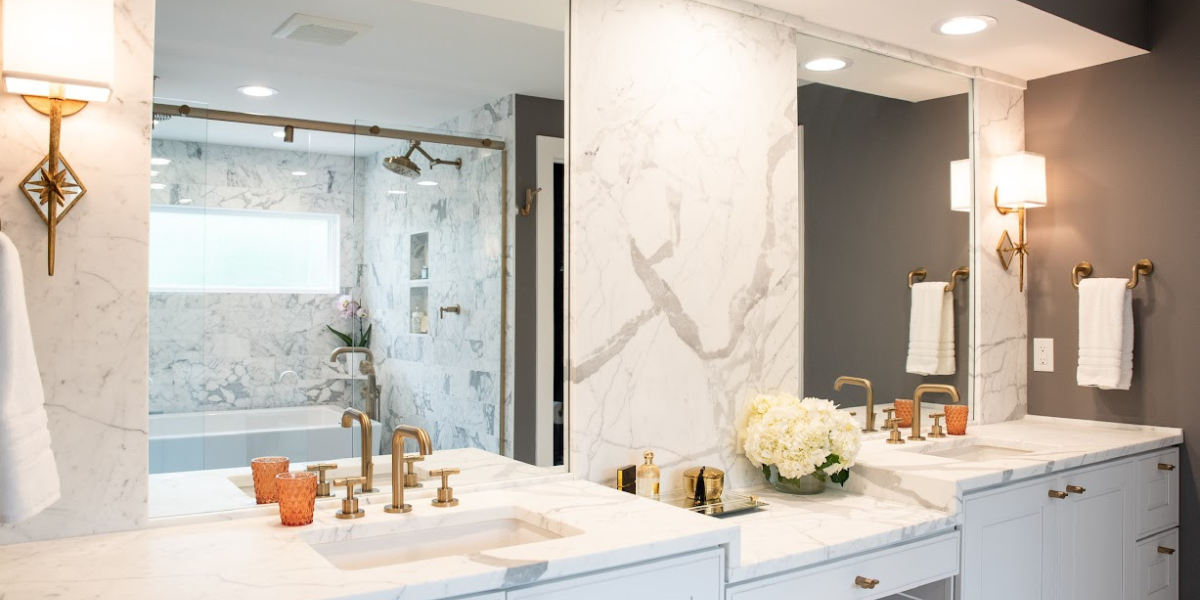The quartz vs granite debate can be a touchy subject for interior designers and homeowners. Watch any episode of House Hunters, and you’ll see the topic of stone can get heated. Though both stones make great interior additions, deciding the right material can be tricky. Let’s avoid the struggle by breaking down the key differences between the two.
Looking for a Natural Stone Supplier? Check out These Tips
The Basics of Quartz and Granite Stone
Before comparing quartz vs granite, it’s important to know what makes these two beautiful materials so unique. To start, granite is a naturally hard stone that’s mined straight from stone quarries around the world. Once the natural stone is cut, it’s then resized, sealed, and polished in slabs that’s naturally charming as bathroom or kitchen countertops and tiles.
Quartz is quite different by comparison. As an engineered stone, quartz is not purely natural being that it’s 95% ground natural quartz with the remaining 5% being polymer resins or other minerals that are formed into slabs.
Quartz vs Granite: The Key Distinctions
Quartz
Pros
Aesthetic: Quartz is a type of stone that is engineered, this material offers a wide range of patterns and colors for homeowners to choose from that are sure to excite and impress visitors!
Easy Upkeep: Due to its creation process, quartz is one of the most indestructible stone materials available. While some cleaning with soap or store cleaners may be required, its non-porous surface easily blocks bacteria from damaging the appearance without resealing.
Cons
Heat: Quartz can be damaged by intensive heat over 350°F, which can be hard to manage around heated pots or hair styling tools. Excessive heat can cause quartz countertops to scorch, ruining the look of your stone surface.
Repair: Damage is a natural occurrence in any home, especially on countertops. If your quartz countertop is ever chipped, scratched or cracked, resins or epoxies can be used to fix those flaws. Yet, repairs should be done professionally—not DIY—to avoid the risk of more damage or repair costs.
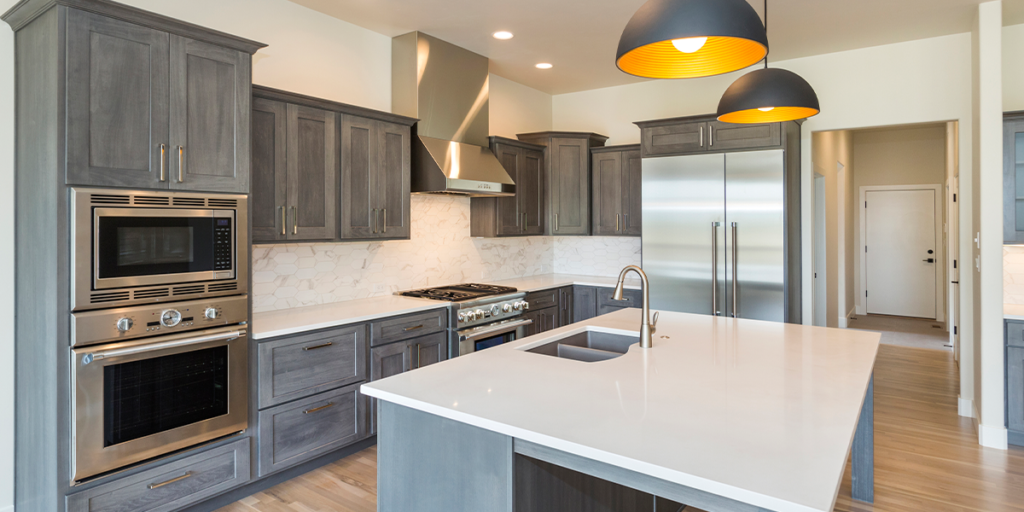
Quartz is easy to upkeep and clean, making it great for kitchen remodels.
Granite
Pros
Durability: Though granite is a natural stone, its composition makes it one of the toughest, most durable luxury materials available. This is particularly true when using granite as a countertop, as the material can withstand extreme temperatures or activity within the home that makes it perfect for the kitchen.
Long-Lasting: As a natural material that’s existed long before any of us, granite stone is typically predicted to last longer than most homeowners. If maintained, granite could last up to 100 years.
Natural Beauty: Unlike quartz, granite slabs boast a wide range of natural colors and patterns due to the planet’s abundance of minerals. Each countertop is guaranteed to be unique, meaning you can achieve the look you desire without custom ordering to meet your envisioned design.
Cons
Maintenance: As a natural porous stone, granite needs to be resealed to prevent any stains or bacteria from damaging the quality. However, depending on how it interacts with your kitchen, this resealing could be done annually or every 15 years. It’s also important to use only mild soaps when cleaning, since acidic chemicals can stain the surface, too.
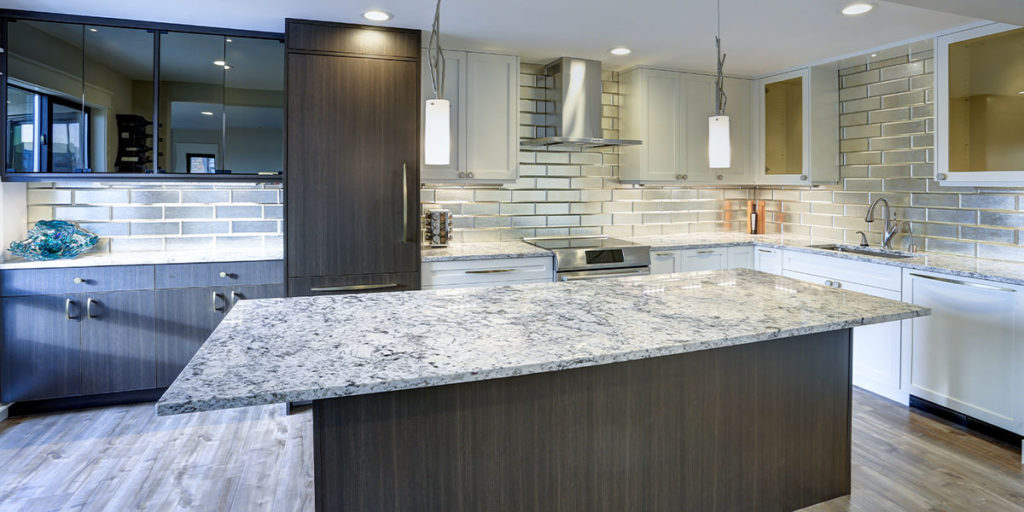
Granite is a natural stone so every slab will have unique colors and patterns.
Weighing Quartz vs Granite, Which Will You Choose?
Depending on your price range and the design you’re looking for, either quartz or granite stone could enhance your interior design. Between the two, both luxury materials have a range of colors, styles, and durability to bring long-term appeal to your home. Still not sure which stone to choose? Contact Z Stone Creations today to schedule a free consultation!


